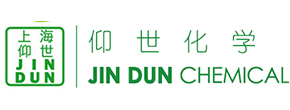Germany plans to open the world's first hydrogen exchange in 2024
2023/10/11
The new version of the National Hydrogen Energy Strategy released by Germany recently has clearly defined the development path, with renewable hydrogen as the lead and low hydrocarbon and renewable hydrogen as the transition strategy.
Entering the strategic implementation period
According to the National Hydrogen Strategy, the German government will allocate 9 billion euros from federal funds for the first phase of hydrogen market development until 2023. Among them, 7 billion euros are used for domestic hydrogen energy development, and 2 billion euros are used for international hydrogen energy cooperation, including the construction of imported infrastructure and the production of hydrogen energy in third countries. Out of the 7 billion euros allocated for the development of hydrogen energy in the country, 2 billion euros are allocated for the development of the electrolytic hydrogen production industry, 2.5 billion euros are allocated for the transformation of the steel and chemical industries towards hydrogen energy applications, 1.5 billion euros are allocated for transportation and transportation, and 1 billion euros are allocated for infrastructure construction. Adopting a two-step strategy. The first stage is from 2021 to 2023, which will gradually expand the market scale and lay the foundation for a well functioning domestic hydrogen energy market; The second stage is from 2024 to 2030, consolidating the domestic hydrogen energy market and participating in the establishment of hydrogen energy markets at the European and international levels. Germany's National Hydrogen Energy Strategy mainly proposes five goals: comprehensive decarbonization, policy regulation, market expansion, technology research and development, and energy security.
At the same time, Germany has established the German National Hydrogen Energy Commission, consisting of 26 senior experts from the economic, scientific, and social sectors, and released the "Hydrogen Action Plan 2021-2025". More than 80 specific action plans have been proposed for the effective implementation of the "National Hydrogen Energy Strategy", and 7 billion euros have been funded in the package plan for the market promotion of 62 large-scale projects, with 2 billion euros invested in international cooperation.
Green transformation driven model
German Chancellor Schultz previously stated at the 2023 World Economic Forum that Germany will become one of the first industrial countries in the world to achieve a climate neutral transition by 2045.
As a representative of the green transformation driven model, Germany has laid the foundation for clean, safe, and economic energy supply through its efforts and successes in renewable energy expansion and energy efficiency. Germany, along with other EU member states, has jointly announced a target for greenhouse gas neutrality by 2050, which means that Germany needs to avoid emissions that are difficult to reduce as much as possible. To this end, Germany needs to find alternatives for fossil fuels that are still in use, and hydrogen energy will play a core role in the continued development and successful completion of Germany's energy transformation.
Germany's demand for energy structure transformation means that it needs a complete hydrogen energy industry chain. The country has a strong industrial foundation and has emerged with numerous leading enterprises in the industry. Germany has a group of world-class enterprises such as Linde, Rheinland, ThyssenKrupp, and Enaper, and cooperates in the development of renewable energy hydrogen production projects in multiple regions around the world based on the advantages of electrolytic cell technology. In terms of storage and transportation, German hydrogen pipeline and refueling station operators have certain technological advantages globally; On the application side, demonstration applications of fuel cell vehicles in public transportation and commercial vehicles have been carried out in the transportation field. In 2021, a total of 14 countries around the world will layout hydrogen fuel cell locomotive demonstrations, with Germany taking the lead. The first environmentally friendly railway line composed of hydrogen powered passenger trains has started operation, with a total of 14 hydrogen powered trains in this batch; In the industrial field, Germany is exploring the use of hydrogen to replace 35% of natural gas without major renovations to existing direct reduction iron furnaces, relying on companies such as Siemens to lay out hydrogen doped gas turbines, and ThyssenKrupp to explore hydrogen metallurgy projects.
With the gradual expansion of international cooperation in the hydrogen energy industry between governments and enterprises in recent years, technology and resources have further matched. The Group of Seven countries (the United States, the United Kingdom, France, Germany, Japan, Italy, and Canada) signed an agreement to promote the large-scale use of low-carbon and renewable energy in various economies. ThyssenKrupp from Germany has signed a strategic cooperation agreement with Air Products from the United States to jointly develop renewable hydrogen projects. In August 2022, Germany signed a hydrogen energy supply agreement with Canada, which will export hydrogen energy to Germany as early as 2025. Since 2022, Germany has signed hydrogen cooperation agreements with multiple countries such as the United Arab Emirates, Namibia, and Norway, further promoting multilateral cooperation in hydrogen energy.
JIN DUN CHEMICAL has built a special (meth) acrylic monomer manufacturing base in ZHEJIANG province. This makes sure the stable supply of HEMA, HPMA, HEA, HPA, GMA with high level quality. Our special acrylate monomers are widely used for thermosetting acrylic resins, crosslinkable emulsion polymers, acrylate anaerobic adhesive, two-component acrylate adhesive, solvent acrylate adhesive, emulsion acrylate adhesive, paper finishing agent and painting acrylic resins in adhesive.We have also developed the new and special (meth) acrylic monomers and derivatives. Such as the fluorinated acrylate monomers, It can be widely used in coating leveling agent, paints, inks, photosensitive resins, optical materials, fiber treatment, modifier for plastic or rubber field. We are aiming to be the top supplier in the field of special acrylate monomers, to share our rich experience with better quality products and professional service.

